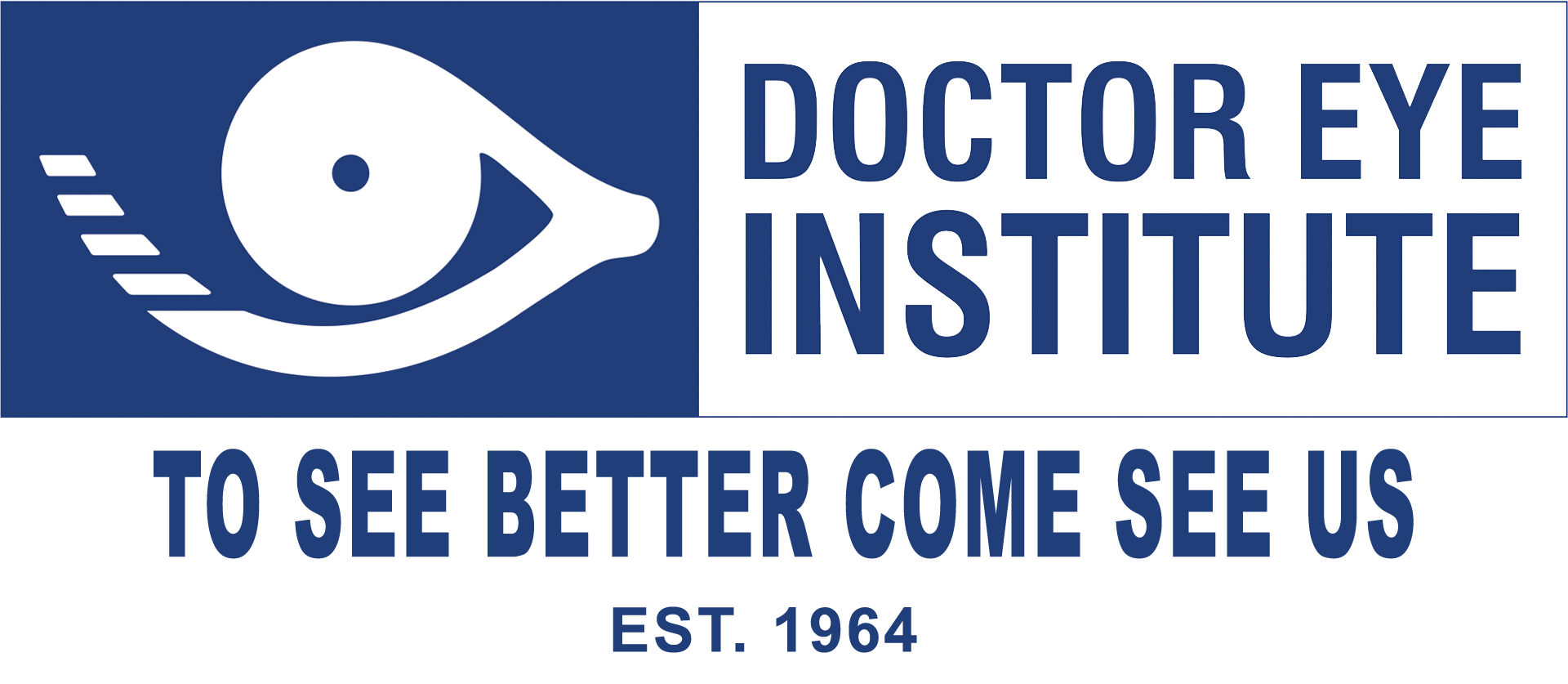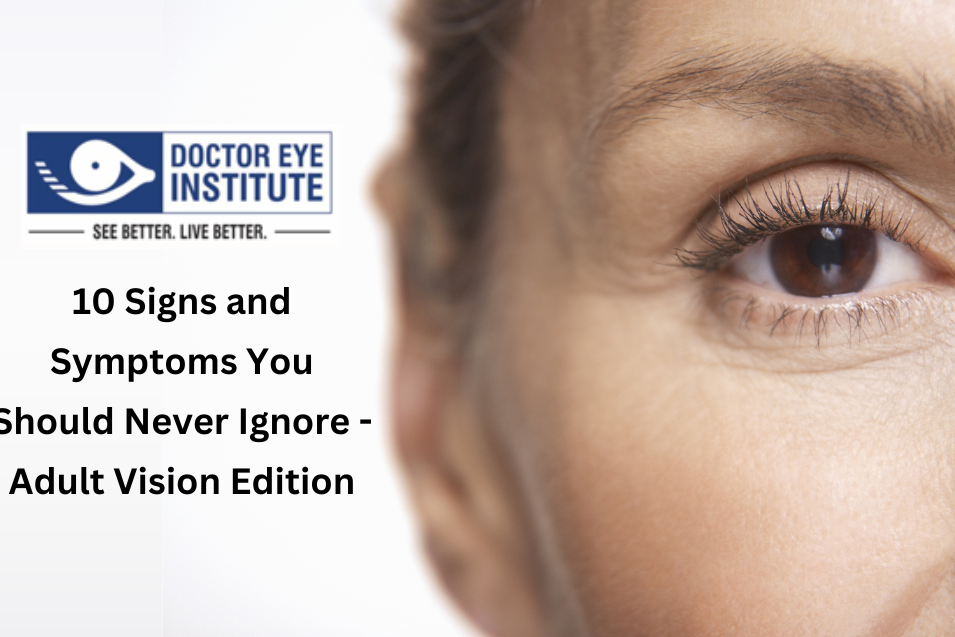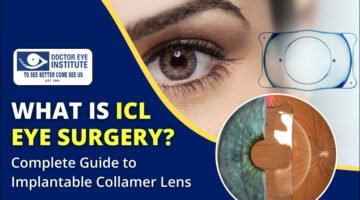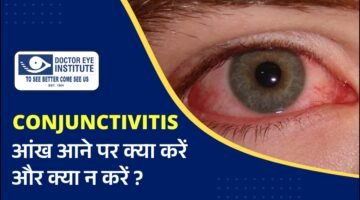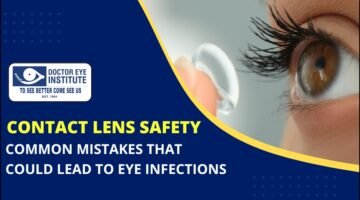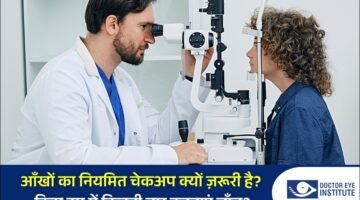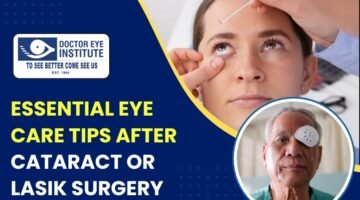10 signs and symptoms to never ignore – Adult Vision Edition
Our vision is one of our most precious senses, allowing us to experience the beauty of the world around us. As we age, it becomes increasingly important to pay attention to any changes or abnormalities in our eyesight. While some vision changes are a normal part of the aging process, certain symptoms may indicate serious underlying conditions that require immediate attention.
10 signs not to ignore – Adult Vision Edition
1. Sudden Blurry Vision | Possible Causes: Cataracts, Glaucoma, or Retinal Detachment
If you notice sudden and unexplained blurriness in your vision, it could be a sign of cataracts, a clouding of the eye’s lens; glaucoma, increased pressure in the eye that can lead to optic nerve damage; or retinal detachment, where the retina separates from the back of the eye. Prompt evaluation b y an eye care professional is essential to determine the cause and initiate appropriate treatment.
2. Double Vision | Possible Causes: Stroke, Brain Tumor, or Other Neurological Disorder
Double vision, also known as diplopia, can be a concerning symptom that may signal serious conditions like a stroke, brain tumor, or other neurological disorder. Seeking immediate medical attention is crucial to identify the underlying cause and begin appropriate management.
3. Floaters | Possible Cause: Retinal Tear or Detachment
Floaters are tiny specks or spots that seem to drift across your field of vision. While they can be normal in some cases, an increase in the number of floaters or the presence of flashing lights could indicate a retinal tear or detachment. Such conditions demand urgent evaluation to prevent potential vision loss.
4. Flashes of Light | Possible Cause: Retinal Tear or Detachment
Flashes of light, like lightning streaks, are a cause for concern, as they often accompany retinal tears or detachments. If you experience this symptom, seek immediate medical attention to rule out any serious eye issues.
5. Loss of Peripheral Vision | Possible Cause: Glaucoma, AMD
The gradual loss of peripheral vision could be a sign of glaucoma, a group of eye diseases that damage the optic nerve, or age-related macular degeneration (AMD), which affects central vision. Both conditions require timely management to preserve vision.
6. Night Blindness | Possible Causes: Vitamin A Deficiency, Retinitis Pigmentosa, or Other Eye Conditions
Difficulty seeing in low-light conditions, or night blindness, may be a symptom of vitamin A deficiency or retinitis pigmentosa, a genetic disorder affecting the retina. Identifying the underlying cause is vital for appropriate treatment.
7. Eye Pain | Possible Causes: Conjunctivitis, Dry Eye, or Glaucoma
Persistent eye pain could be linked to conditions such as conjunctivitis (pink eye), dry eye syndrome, or glaucoma. Seeking medical attention can help alleviate discomfort and prevent complications.
8. Redness in the Eye, Swelling Around the Eye | Possible Causes: Conjunctivitis, Blepharitis, or Other Eye Conditions
Redness and swelling in the eye area may indicate conjunctivitis, an inflammation of the eye’s outer membrane, or blepharitis, an inflammation of the eyelids. Proper diagnosis and treatment are essential to prevent further irritation and potential vision complications.
9. Sudden Loss of Vision | Possible Causes: Stroke, Brain Tumor, or Other Serious Condition
A sudden and complete loss of vision requires immediate medical attention, as it could signal a stroke, brain tumor, or other severe medical condition that demands urgent evaluation and intervention.
10. Eye Fatigue and Strain | Possible Causes: Digital Eye Strain, Presbyopia
Feeling eye fatigue and strain after extended screen time or close-up work is common and may be due to digital eye strain or age-related presbyopia. Proper eye care practices and regular eye check-ups are crucial to manage these conditions effectively.
Ignoring changes in your vision can lead to serious consequences, including permanent vision loss. If you experience any of the ten signs and symptoms mentioned in this blog, don’t hesitate to consult an eye care professional promptly. Early diagnosis and appropriate treatment are essential for preserving and protecting your precious eyesight, allowing you to enjoy life to the fullest with clear and healthy vision.
To know more, visit Doctor Eye Institute today!

